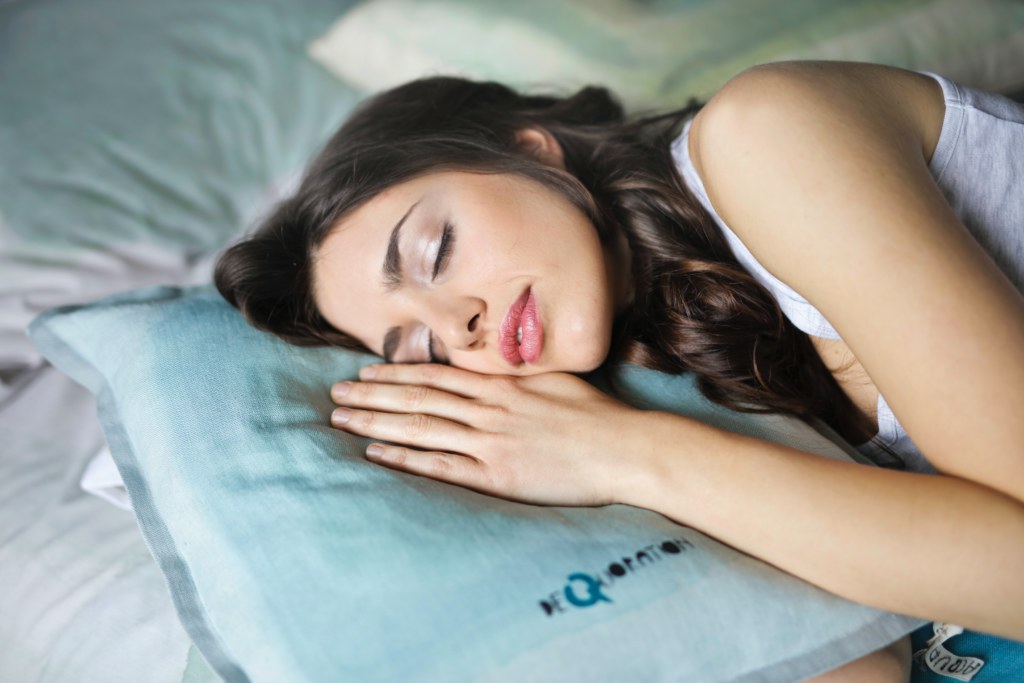In this month’s blog, we’re going to be talking about the amount of rest we have and how it affects our mental health.
So how do we define rest?
Rest is generally defined as ceasing whatever activities or work we are doing in order to relax, sleep, or recover our strength. So as you can imagine, this is a very important foundation to maintaining mental health and wellbeing!
According to The Sleep Foundation, sleep is important to our health in the same way that eating, drinking and breathing are. It allows the body to repair itself, and our brains to consolidate our memories and process information. We spend approximately a third of our lives asleep and without having enough sleep, we cannot function effectively.
Sleep is said to be linked to physical problems as well as mental health problems, such as anxiety and depression. There are many simple ways in which you can make adjustments to your sleep routine commonly known as “sleep hygiene”. For example, adjusting the light, noise and temperature in your bedroom, changing your eating, drinking and exercise routines. Some types of Cognitive Behavioural Therapy (CBT) have been shown to be very helpful in reducing long-term sleep issues and have been used as an alternative to taking medication.
Common things which affect our sleep hygiene are caffeine, alcohol and nicotine consumption. And when it comes to nutrition, it is recommended that people should not go to bed hungry so a light snack might be helpful. But eating large meals before bedtime should be avoided. Some food is said to have sleep-inducing properties (such as rice) as they have melatonin in them which promotes the desire to sleep. Some dairy products contain an amino acid called “tryptophan” which is useful in manufacturing that melatonin in your body.
Foods that contain caffeine or large amounts of sugar and food additives are also said to interfere with sleep in children and result in periods of hyperactivity.
It is has been shown that through psycho-education about sleep, the use of simple CBT techniques and simple changes in work/life balance, that over a period of time, an improvement of 70% in sleep patterns is possible in some cases.
Below are a number of resources which are worth looking at if you are interested in improving your sleep.
If you either don’t have the internet or you would like to discuss how you might get support with improving your sleep, please feel free to book a session with a member of staff at MFT and we would be happy to support you to access resources and services which will help you make improvements to sleep pattern.
How to contact a member of staff at MFT
We offer telephone or video call appointments of up to 30 minutes so you can talk more in depths about the feelings and issues you may be experiencing. Please note these are not counselling sessions but mental health support conversations.
You’ll need to book in advance by calling our main office and leaving a voicemail, or calling the person you’d like to speak to directly.
To see what days/times are available, you can download our Appointments Calendar.
Contact us
Mary Frances Trust’s main office: 01372 375400. Please note that it will go straight to answerphone and we’ll get back to you as soon as we can but this might be a bit delayed.
The phone numbers listed below will be answered during working hours, Monday to Friday from 9am until 4pm. If you phone outside of these hours, please leave a voicemail and someone will respond as soon as they are able to.
John O’Malley: 07868 203512 or johnomalley@maryfrancestrust.org.uk
Michael Powell: 07961 487625 or michael@maryfrancestrust.org.uk
Parvin Ahmed: 07380 857 701 or parvin@maryfrancestrust.org.uk
Lenny Roberts Flanders: 07929 024724 or lenny@maryfrancestrust.org.uk
Anna Silver: 07432 510493 or anna@maryfrancestrust.org.uk
Sleep, Rest and Mental Health Resources
Sleep Council
https://sleepcouncil.org.uk/category/sleep-hygiene/
Healthy Surrey
https://www.healthysurrey.org.uk/mental-wellbeing/adults/self-help/a-z-and-useful-links/sleep
https://www.healthysurrey.org.uk/covid/information-and-self-care
Surrey County Council
Mental Health Foundation
https://www.mentalhealth.org.uk/publications/sleep-report
Mind
British Snoring & Sleep Apnoea Association (Information and support for people affected by snoring and sleep apnoea)
NHS Live Well (Advice, tips and tools to help with health and wellbeing)
https://www.nhs.uk/live-well/sleep-and-tiredness/why-lack-of-sleep-is-bad-for-your-health/
NHS UK (Information about health problems and treatments, including details of local NHS services in England)
Narcolepsy UK (Supports people with narcolepsy, their families, carers and others interested in improving their quality of life, health problems and treatments)
Anna Freud National Centre for Children and Families
https://www.annafreud.org/on-my-mind/self-care/sleep/
Young Minds (Children and Young People Mental Health Charity)
https://youngminds.org.uk/find-help/looking-after-yourself/take-time-out/
BBC News
Want to write a blog for us? We’d love to hear from you! Contact us at connie@maryfrancestrust.org.uk

